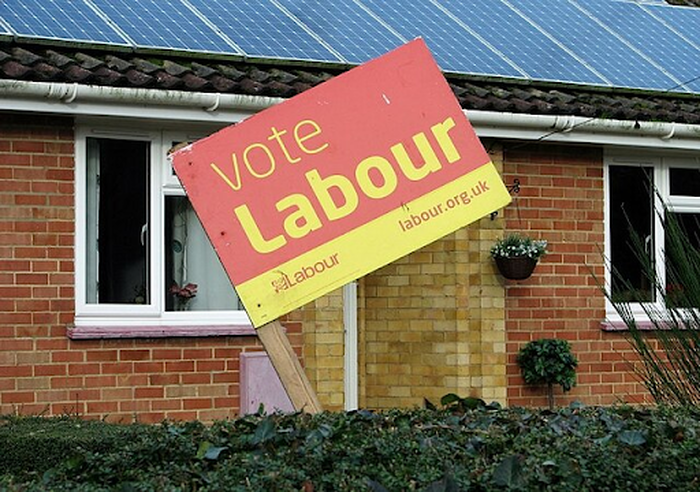Let’s turn the tide on political cynicism
Labour’s rise to power had more to do with anti-Tory sentiment than their own manifesto, but we must give them the opportunity to prove why they deserved our vote in and of themselves, argues Amenie Groves

I was more excited to register for my postal vote than I would like to admit. After all, this was the first general election where I, along with all those aged 18-22, would finally be eligible to vote for my own future. My eagerness to hand in that little slip of paper is unsurprising given the past few years of parliamentary instability: Boris Johnson’s handling of the COVID-19 pandemic and subsequent scandals regarding parties held during lockdown; Liz Truss’ short and economically destructive stint as Prime Minister; and Rishi Sunak’s time as the third Conservative leader in two years. British politics has become a weekly soap opera, a series to laugh and wince at.
Back in May, Sunak’s rain-soaked call for a General Election kickstarted the six-week scramble to win public favour and form the United Kingdom’s next government. The campaigns saw fierce debate, manifestos challenged, and even a bungee-jumping Ed Davey. In the aftermath of the election, with Labour defeating the Conservatives by a nationwide landslide, the sun has set on fourteen years of Tory government, but new PM Keir Starmer and his cabinet have a mountain ahead of them if they want to reignite the British public’s faith in politics.
“British politics has become a weekly soap opera, a series to laugh and wince at”
It’s a well-known fact that we don’t trust our politicians. Why should we when even they don’t take themselves seriously? I am reminded of Matt Hancock’s stint on I’m a Celebrity or better yet, party-gate. The majority of young people in the UK did not feel that either the Conservative or Labour parties truly represented the government they wanted to see, with a great deal of them opting for a tactical vote in July. For many, the election felt like choosing the lesser of two evils. And, despite Labour’s impressive 411 seat victory, the party only actually won about 33.8% of all votes, having increased their share of the votes a measly 1.6% from 2019, the infamous year in which the party received their worst result since 1935.
However, being in this country where cynicism reigns supreme, and a normal response to “how are you?” is “not bad”, I am inclined to, somewhat gingerly, extend the olive branch of neutrality to our new government. It can be all too easy to immediately assume the worst, given the UK’s political track record, but there does exist reason to allow for a little hope.
“We cannot let our trained cynicism dictate how we view politics for the rest of our lives”
The new Prime Minister promised us a return to politics as a “public service” in his first speech outside Number 10. Within the following day, action had already begun to take place with the appointing of the cabinet and scrapping of the Rwanda plan. This new government is also the most state-educated and female cabinet we’ve ever had. Whether you like it or not, things will start to look a little different.
It is my belief that we cannot and should not judge our new government until the first one hundred days are up. Why? Because we deserve to foster a little hope, to afford ourselves the luxury of remembering what politics is supposed to do, and hoping our leaders will carry that out. There will be disappointments, certainly. But there may also be successes and pleasant surprises. In expecting the worst, we blind ourselves to good changes that are made, which have the potential to improve people’s lives across the country.
I was speaking to a few of my colleagues at work the other day, who are currently just below the voting age. When I mentioned the election, they scoffed, saying that when their time came, they wouldn’t bother voting because “what good would it do anyway?” This was unfortunately the common consensus amongst the younger staff. For many of us in my age bracket, we have no experience of a government that truly strives to serve its country. Now, we may finally begin to see it happen. We cannot let our trained cynicism dictate how we view politics for the rest of our lives. We must rather continue to invest ourselves in it - calling out our leaders where necessary, but equally applauding them when good work is done. If not, we run the risk of losing our faith in politics completely. We must maintain the belief that we can drive change with the power of a vote on election day.
 News / Uni Scout and Guide Club affirms trans inclusion 12 December 2025
News / Uni Scout and Guide Club affirms trans inclusion 12 December 2025 News / Pembroke to convert listed office building into accom9 December 2025
News / Pembroke to convert listed office building into accom9 December 2025 News / Cambridge Vet School gets lifeline year to stay accredited28 November 2025
News / Cambridge Vet School gets lifeline year to stay accredited28 November 2025 Features / Searching for community in queer Cambridge10 December 2025
Features / Searching for community in queer Cambridge10 December 2025 News / Uni redundancy consultation ‘falls short of legal duties’, unions say6 December 2025
News / Uni redundancy consultation ‘falls short of legal duties’, unions say6 December 2025









